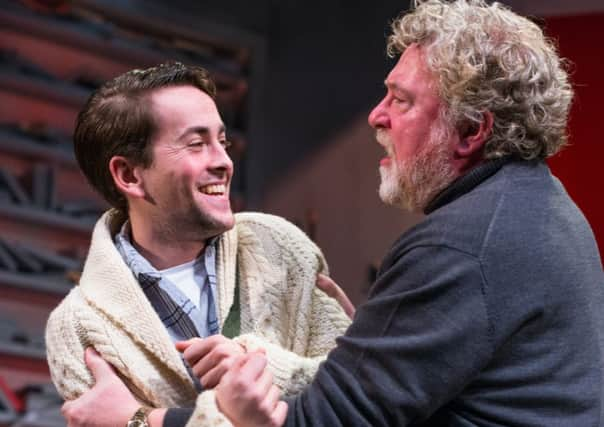Theatre review: Deathtrap


Dundee Rep ****
That’s the world conjured up in Ira Levin’s brilliant 1978 thriller, Deathtrap; and although it would be hell to live in, it’s a hugely entertaining place to spend a couple of hours, particularly in a production as visually spectacular, elegant and witty as this latest version at Dundee Rep, designed by arch-stylist Kenny Miller, vividly lit by Lizzie Powell, and directed by comedy-and-panto genius Johnny McKnight. As the play opens, ageing playwright Sidney Bruhl is sitting at his library desk in rural Connecticut, surrounded by posters for his own once-successful plays, and brooding over the script of a brilliant new thriller he has just received from one of his creative writing students.
Cue an immensely convoluted Russian doll of a plot in which Bruhl invites the young man up to Westport for a script session, with – his wife Myra fears – nefarious motives, highlighted by the collection of old murder weapons waiting in frames on the library walls; it’s typical of the sheer wit of the clean-lines modernist set – without a trace of chintz or brown leather – that the highlighting is literal, with the exhibits glowing in bloody pink against a backdrop of grey bookshelves. And there follows a delicious roller-coaster ride of plot and counter-plot, well sustained by Lewis Howden as Sidney, Emily Winter as Myra, and Thomas England as the young playwright Clifford, with Irene Madougall in fine form as local clairvoyant Helga ten Dorp, an enjoyable if stereotyped comic turn.
Advertisement
Hide AdThe play’s weakness lies in the emotional aridity of its vision, which allows for no character development. Two hours is probably enough, when we can be certain that everything a character says will soon turn out to be a manipulative lie; and it’s not surprising that when the play wanders into what was still, in 1978, the socially taboo realm of gay romance, it becomes uneasy and embarrassing. Yet the style, pace, and classic-thriller melodrama of Johnny McKnight’s production is as amusing as it is satisfying; and Levin’s multi-layered ingenuity so breathtaking that it quite deliberately leaves us wondering whether he himself ever thought of making away with a few young playwriting rivals – but not, of course, before pocketing their brilliant debut plays, and claiming them as his own.
JOYCE MCMILLAN
Until 10 March